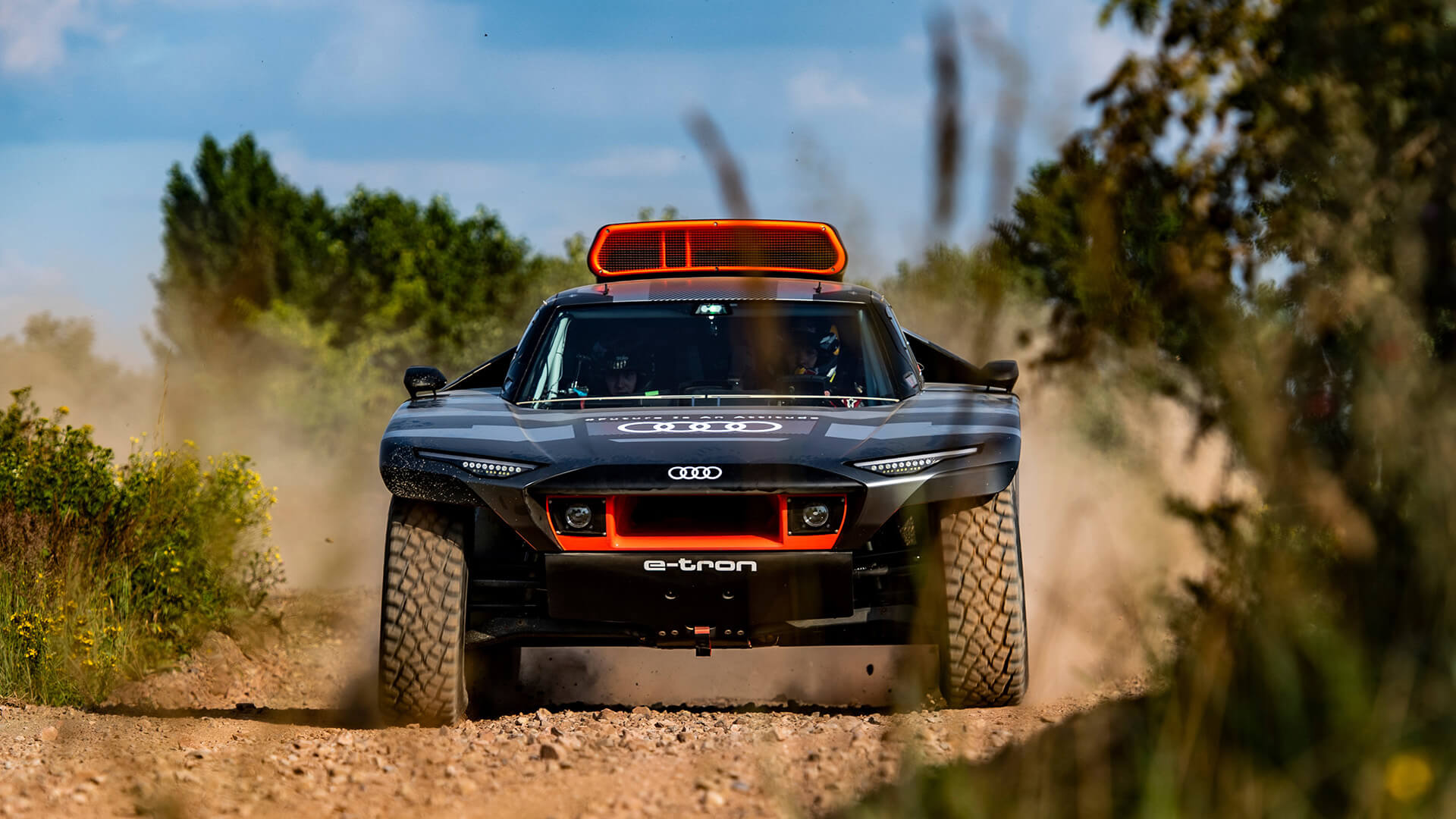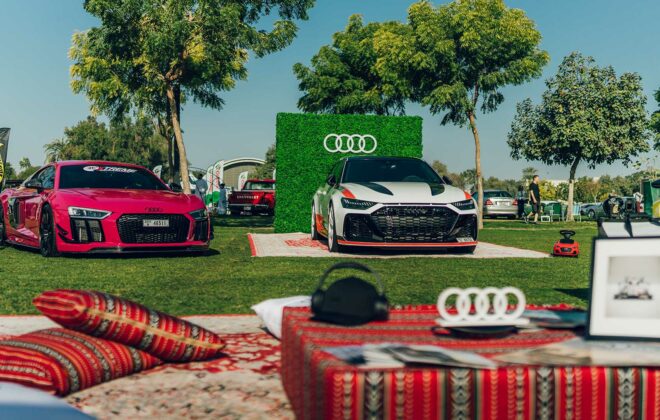Audi RS Q e-tron: Test laboratory opens at the Dakar Rally for possible future technologies
- Futuristic prototype with innovative drive concept
- High-voltage battery is charged while driving
- Testing has already started
Dubai, UAE, August 1, 2021 – Under a year after the initial concept idea, Audi Sport has started testing the new Audi RS Q e-tron, with which Audi will take on one of the greatest challenges there is in international racing in January 2022: the Dakar Rally in Saudi Arabia.
Audi is set to be the first car manufacturer to use an electrified drivetrain in combination with an efficient energy converter to compete for overall victory against conventionally-powered competitors in the world’s toughest rally. “The quattro was a gamechanger for the World Rally Championship. Audi was the first brand to win the Le Mans 24 Hours with an electrified drivetrain. Now, we want to usher in a new era at the Dakar Rally, while testing and further developing our e-tron technology under extreme conditions,” says Julius Seebach, Managing Director of Audi Sport GmbH and responsible for motorsport at Audi. “Our RS Q e-tron was created on a blank sheet of paper in record time and stands for Vorsprung durchTechnik.”
“The Dakar Rally has become one of the most renowned motoring events globally for its rich history and prestige among international racing communities and we are very proud that it is hosted in the Middle East. We’re looking forward to being part of this flagship event where the Audi RS Q e-tron can showcase its unmatched innovation in the unique climate presented by the region,” commented by Carsten Barden, Audi Middle East Managing Director.

The characteristics of the Dakar Rally present the engineers with special challenges. The marathon event lasts two weeks and the daily stages are up to 800 kilometers in length. “That’s a very long distance,” says Andreas Roos, responsible for the Dakar project at Audi Sport. “What we are trying to do has never been done before. This is the ultimate challenge for an electric drivetrain.”
Because there are no charging opportunities in the desert, Audi has chosen an innovative concept: On board of the Audi RS Q e-tron, there is the highly efficient TFSI engine from the DTM. It is part of an energy converter that charges the high-voltage battery while driving. Since the combustion engine is operated in the particularly efficient range of between 4,500 and 6,000 rpm, the specific consumption is well below 200 grams per kWh.
The drivetrain of the Audi RS Q e-tron is electric, with front and rear axles both fitted with a motor-generator unit (MGU) from the current Audi e-tron FE07 Formula E car developed by Audi Sport for the 2021 season. Only minor modifications had to be made to use the MGU in the Dakar Rally.
Visually, the Audi RS Q e-tron also differs significantly from conventionally-powered Dakar prototypes. “The vehicle looks futuristic and has many design elements that are typical of Audi,” says Juan Manuel Diaz, Team Leader of Motorsport Design at Audi. “Our aim was to symbolize Vorsprung durch Technik and the future of our brand.”
The Dakar Rally entry is being run in conjunction with Q Motorsport. “Audi has always chosen new and bold paths in racing, but I think this is one of the most complex cars that I have ever seen,” says team principal Sven Quandt. “The electric drivetrain means that a lot of different systems have to communicate with each other. Besides reliability, which is paramount in the Dakar Rally, that’s our biggest challenge in the coming months.”
Quandt compares Audi’s Dakar project to the first moon landing: “Back then, the engineers didn’t really know what was coming. It’s similar with us. If we finish the first Dakar event, that’s already a success.”
The prototype of the Audi RS Q e-tron had its first roll-out in Neuburg at the beginning of July. An intensive test program and the first test entries at cross-country rallies are on the agenda from now until the end of the year.
For more information about the Audi model lineup, please visit www.audi-me.com



